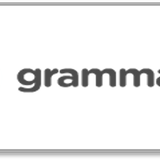Independence And Competence On Audit Fraud Detection: Role Of Professional Skepticism As Moderating
DOI:
https://doi.org/10.24912/ja.v26i1.823Abstract
We conducted this study to analyze and examine the effect of competence auditor independence on fraud detection. This study also analyzes the effect of competence auditor independence on fraud detection if moderated by professional skepticism. This study involved 59 auditors working at the Inspectorate of South Sulawesi Province. This sample selection uses the census method because the population is less than 100 people. We use primary data by providing questionnaires/statement sheets to respondents. The data analysis method uses the Smart PLS approach. The results showed that competence and auditor independence variables positively and significantly affected fraud detection. The auditor competence variable has a negative and significant effect on fraud detection if moderated by professional skepticism. The auditor competence variable positively and significantly affects fraud detection if moderated by professional skepticism.
References
Achim, M.-V., and Borlea, S. N. (2015). Developing of ESG Score to Assess the Non-financial Performances in Romanian Companies. Procedia Economics and Finance, 32, 1209–1224. https://doi.org/https://doi.org/10.1016/S2212-5671(15)01499-9
Aida, N. (2021). Work Experience, Obedience Pressure and Task Complexity on Audit Judgment. Golden Ratio of Auditing Research, 1(2), 61–69.
Best, P. J., Buckby, S., and Tan, C. (2001). Evidence of the audit expectation gap in Singapore. Managerial Auditing Journal, 16(3), 134–144. https://doi.org/10.1108/02686900110385579.
Brad, L., Munteanu, A., and Brasoveanu, I. V. (2015). Measuring the Performance of Romanian Listed Companies Considering their Individual Characteristics. Procedia Economics and Finance, 32, 1225–1235. https://doi.org/https://doi.org/10.1016/S2212-5671(15)01500-2.
Cheng, X., Liu, S., Sun, X., Wang, Z., Zhou, H., Shao, Y., and Shen, H. (2021). Combating emerging financial risks in the big data era: A perspective review. Fundamental Research, 1(5), 595–606. https://doi.org/https://doi.org/10.1016/j.fmre.2021.08.017.
Chin, W. W., and Dibbern, J. (2010). Handbook of Partial Least Squares. Handbook of Partial Least Squares, 171–193. https://doi.org/10.1007/978-3-540-32827-8.
Elrehail, H. (2018). The relationship among leadership, innovation and knowledge sharing: A guidance for analysis. Data in Brief, 19, 128–133. https://doi.org/10.1016/j.dib.2018.04.138.
Endri, E. (2020). The effect of task complexity, independence and competence on the quality of audit results with auditor integrity as a moderating variable. International Journal of Innovation, Creativity and Change, 12(12).
Fernandez, R., Palma Guizar, B., and Rho, C. (2021). A sentiment-based risk indicator for the Mexican financial sector. Latin American Journal of Central Banking, 2(3), 100036. https://doi.org/https://doi.org/10.1016/j.latcb.2021.100036.
Ferramosca, S. (2019). A worldwide empirical analysis of the accounting behaviour in the waste management sector. Waste Management, 88, 211–225. https://doi.org/https://doi.org/10.1016/j.wasman.2019.03.041.
Ferramosca, S., and Allegrini, M. (2018). The complex role of family involvement in earnings management. Journal of Family Business Strategy, 9(2), 128–141. https://doi.org/https://doi.org/10.1016/j.jfbs.2018.01.001.
Garanina, T., Ranta, M., and Dumay, J. (2021). Blockchain in accounting research: current trends and emerging topics. Accounting, Auditing & Accountability Journal, ahead-of-print(ahead-of-print). https://doi.org/10.1108/AAAJ-10-2020-4991.
Gutiérrez-Zamora, V., and Hernández Estrada, M. (2020). Responsibilization and state territorialization: Governing socio-territorial conflicts in community forestry in Mexico. Forest Policy and Economics, 116, 102188. https://doi.org/https://doi.org/10.1016/j.forpol.2020.102188.
Harris, D. G., Shi, L., and Xie, H. (2018). Does benchmark-beating detect earnings management? Evidence from accounting irregularities. Advances in Accounting, 41, 25–45. https://doi.org/https://doi.org/10.1016/j.adiac.2018.04.001.
Hurtt, R. K. (2010). “Development of a scale to measure professional skepticism.” Auditing: A Journal of Practice & Theory. 29.1, 149–171.
Islam, S., and Stafford, T. (2022). Factors associated with the adoption of data analytics by internal audit function. Managerial Auditing Journal, 37(2), 193–223. https://doi.org/10.1108/MAJ-04-2021-3090.
Jaya, T. E., and Irene, C. (2016). Skepticism, Time Limitation of Audit, Ethics of Professional Accountant and Audit Quality (Case Study in Jakarta, Indonesia). Review of Integrative Business and Economics Research, 5(3), 173–182.
Kertarajasa, A. Y., Marwa, T., and Wahyudi, T. (2019). The effect of competence, experience, independence, due professional care, and auditor integrity on audit quality with auditor ethics as moderating variable.
Liahmad, L., Rusnindita, K., and Utami, Y. P. (2020). Effect of Competence, Independence, and Auditor Experience of Audit Quality (Study of Public Accountants in Malang City Public Accountant Office). International Joint Conference on Science and Technology, 2(1), 152–159.
Lin, Y.-T., Liu, N.-C., and Lin, J.-W. (2022). Firms’ adoption of CSR initiatives and employees’ organizational commitment: Organizational CSR climate and employees’ CSR-induced attributions as mediators. Journal of Business Research, 140, 626–637. https://doi.org/https://doi.org/10.1016/j.jbusres.2021.11.028.
Luo, Y., Zou, X., Liu, D., Peng, W., and Wu, X. (2021). Extraction of Specific Arguments from Chinese Financial News with out-of-domain Samples. Procedia Computer Science, 183, 288–294. https://doi.org/https://doi.org/10.1016/j.procs.2021.02.061.
Madawaki, A., Ahmi, A., and Ahmad, H. @ N. (2021). Internal audit functions, financial reporting quality and moderating effect of senior management support. Meditari Accountancy Research, ahead-of-print(ahead-of-print). https://doi.org/10.1108/MEDAR-04-2020-0852.
Ozcelik, H. (2020). An Analysis of Fraudulent Financial Reporting Using the Fraud Diamond Theory Perspective: An Empirical Study on the Manufacturing Sector Companies Listed on the Borsa Istanbul. Contemporary Issues in Audit Management and Forensic Accounting (Vol. 102, pp. 131–153). Emerald Publishing Limited. https://doi.org/10.1108/S1569-375920200000102012.
Ozlanski, M. E. (2019). Bright lines vs. blurred lines: When do critical audit matters influence investors’ perceptions of management’s reporting credibility? Advances in Accounting, 45, 100416. https://doi.org/https://doi.org/10.1016/j.adiac.2019.04.001.
Putri, A. P., Nabila, N., Augustin, V., and Fellia, F. (2021). Audit Tenure, Auditor Experience, Independency, And Task Complexity On Audit Judgement. Jurnal Riset Akuntansi Kontemporer, 13(1), 7–12.
Salloum, C., Azzi, G., and Gebrayel, E. (2014). Audit Committee and Financial Distress in the Middle East Context: Evidence of the Lebanese Financial Institutions. International Strategic Management Review, 2(1), 39–45. https://doi.org/https://doi.org/10.1016/j.ism.2014.09.001.
Shen, Y., Guo, C., Li, H., Chen, J., Guo, Y., and Qiu, X. (2021). Financial Feature Embedding with Knowledge Representation Learning for Financial Statement Fraud Detection. Procedia Computer Science, 187, 420–425. https://doi.org/https://doi.org/10.1016/j.procs.2021.04.110.
Singh, K., and Best, P. (2016). Interactive visual analysis of anomalous accounts payable transactions in SAP enterprise systems. Managerial Auditing Journal, 31(1), 35–63. https://doi.org/10.1108/MAJ-10-2014-1117.
Stiegert, P., Täuber, S., Leliveld, M. C., and Oehmichen, J. (2021). The stereotype rub-off effect – Organizational stereotypes modulate behavioural expectations, expectancy violation and punishment after transgressions. Organizational Behavior and Human Decision Processes, 165, 127–138. https://doi.org/https://doi.org/10.1016/j.obhdp.2021.04.011.
Sudibjo, N., and Prameswari, R. K. (2021). The effects of knowledge sharing and person–organization fit on the relationship between transformational leadership on innovative work behavior. Heliyon, 7(6), e07334. https://doi.org/https://doi.org/10.1016/j.heliyon.2021.e07334.
Wen, H., and Liu-Lastres, B. (2021). Examining the impact of psychological capital on workplace outcomes of ethnic minority foodservice employees. International Journal of Hospitality Management, 94, 102881. https://doi.org/https://doi.org/10.1016/j.ijhm.2021.102881.
Widiyati, D., Valdiansyah, R. H., Meidijati, M., and Hendra, H. (2021). The Role of Public Accountants in Fraud Prevention and Detection in the Taxation Sector during Covid-19. Golden Ratio of Auditing Research, 1(2), 70–82.
Yin, H., Han, J., and Perron, B. E. (2020). Why are Chinese university teachers (not) confident in their competence to teach? The relationships between faculty-perceived stress and self-efficacy. International Journal of Educational Research, 100, 101529. https://doi.org/https://doi.org/10.1016/j.ijer.2019.101529.
Zhu, X., Ao, X., Qin, Z., Chang, Y., Liu, Y., He, Q., and Li, J. (2021). Intelligent financial fraud detection practices in post-pandemic era. The Innovation, 2(4), 100176. https://doi.org/https://doi.org/10.1016/j.xinn.2021.100176.
Downloads
Published
How to Cite
Issue
Section
License

This work is licensed under a Creative Commons Attribution-NonCommercial-ShareAlike 4.0 International License.
This journal provides immediate open access to its content on the principle that making research freely available to the public supports a greater global exchange of knowledge.

This work is licensed under a Creative Commons Attribution-NonCommercial-ShareAlike 4.0 International License



















